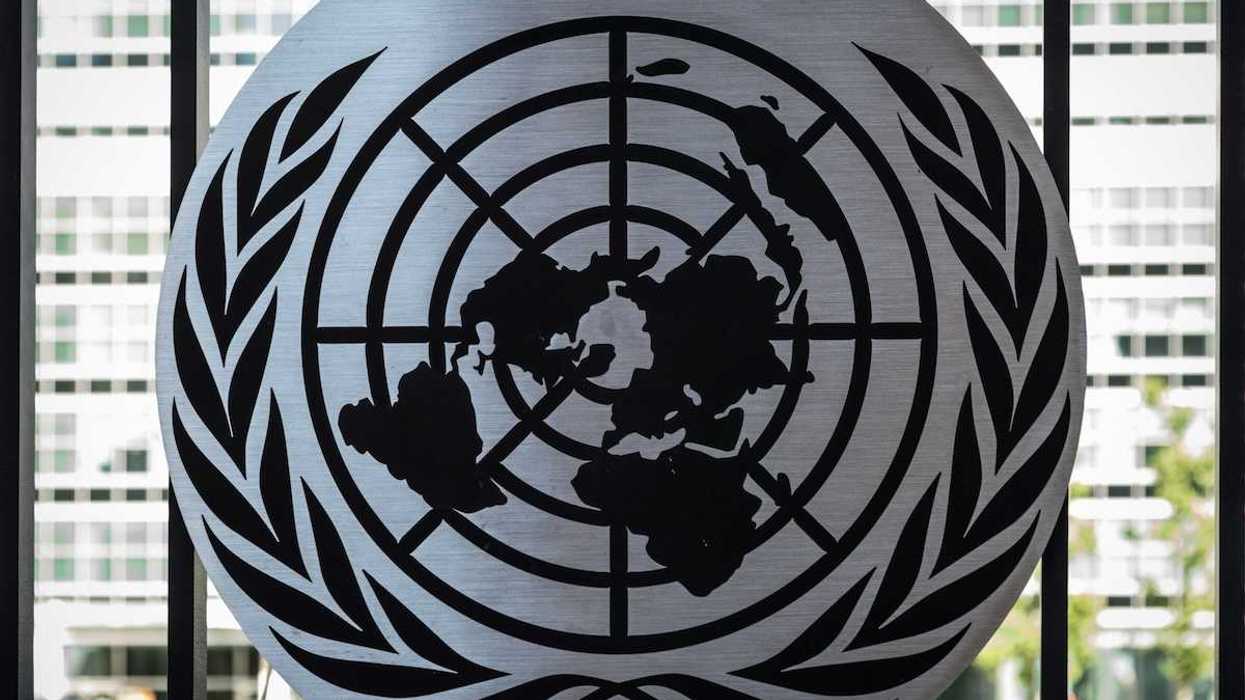Following the publication of our four-part series Breathless: Pittsburgh's asthma epidemic and the fight to stop it, we reached out to politicians and lawmakers to hear their thoughts on how we can work together to improve the air.
Allegheny County Executive Rich Fitzgerald supervises numerous county agencies, including the Allegheny County Health Department, which is responsible for enforcing air quality regulations. He has served as County Executive since 2011.
Jim Kelly has served as the Deputy Director of Environmental Health at the Allegheny County Health Department since 2017. He was formerly the Planning and Data Analysis Section Chief in the Air Quality Program.
EHN: Do you hear concerns about air pollution or asthma from your constituents?
Fitzgerald: Yes—not just now, but throughout my whole career. I've been County Executive for almost seven years, and I also served on the County Council for 12 years. Early on as a councilmember I introduced a lot of groundbreaking legislation to improve air quality.
One was an anti-idling law we passed in Allegheny County to keep school buses and delivery trucks and other vehicles from sitting and idling, which contributes to air pollution. We got it passed, but the state came in and preempted it, saying we couldn't issue citations. It was almost as if someone was breaking the speed limit going down the street, but the state said we couldn't give them a ticket. So that was frustrating.
It's also frustrating that the railroad industry is exempt from pollution laws. In some of our train yards in Allegheny County, trains can belch pollution all day long and nobody can do a thing since they're exempt from the Clean Air Act.
But indoor air was also a problem. In 2006 as Councilman I introduced a smoking ban for Allegheny County. I'll never forget—the health department director at the time, [Bruce Dixon], said on air [on the radio] that we don't want a smoking ban because it would hurt the bar business. This wasn't the economic developer. It was the health department director. We got it passed against a lot of opposition.
My commitment to air quality has been long-standing and will continue to be.
EHN: Those things are certainly important when it comes to reducing asthma rates, but 70% of Pittsburgh's air pollution comes from industrial sources. Have you done anything to address that issue?
Fitzgerald: The health department director who opposed the smoking ban is no longer there. We brought in Dr. Karen Hacker, who is by far the most proactive person we've ever had when it comes to overall public health, air pollution and air quality. Last fall she instituted, for the first time ever, a Notice of Violation with U.S. Steel in Braddock with the EPA. And very recently the department issued the largest fine ever to U.S. Steel in Clairton—a million dollars plus a notice that they'll have to shut down certain aspects of the operation if they don't improve air quality.
EHN: While reporting for the asthma series, we looked at a recent study of 1,200 Pittsburgh students in low-income neighborhoods. It found that more than 70% of those kids live in areas with particulate matter pollution levels above World Health Organization annual average thresholds for safety. How have you empowered the health department to address that?
Fitzgerald: We've given them additional resources and hired a number of additional regulators to do air quality inspections. It's one of the few areas in city government in which employment levels have gone up.
Kelly: Dr. Hacker has also expanded our legal team. We used to only have one lawyer. We have three and an intern now, which is indicative of the work we're doing to stop repeat offenders. We've also replaced the County Solicitor. In the regulatory world there's a lot of status quo, but the new solicitor is really pushing the bounds thanks to these new mandates from Dr. Hacker.
EHN: A Pittsburgh pediatrician, Dr. Deborah Gentile, has launched a pilot program that uses a simple survey to predict asthma diagnoses in kids. She hopes to see mandatory asthma screenings implemented in all public schools in the county and ultimately throughout the state, similar to vision and hearing screenings, on the premise that kids' ability to breathe is just as critical as their ability to see and hear. What do you think about that idea?
Fitzgerald: We recently passed something similar with mandatory blood lead testing for kids. Doing mandatory testing brings in the need for other resources, but it's certainly something we could take a look at. We'd probably want to talk to the doctor and hear the pros and cons, and if it turns out to be positive thing we'd get behind it.
EHN: Are you aware of the Allegheny County Health Department's Asthma Task Force?
Fitzgerald: I haven't been involved in any meetings yet, but when they have recommendations I will sit down with them to hear them.
One thing that's been disheartening with the implementation of the lead testing is that if kids are above a certain level, we can go knock on their door to try and figure out what's in the home environment that could be causing the problem. But the parents have the ability to say "No, you can't," and I've been surprised that such high numbers of parents do that even though we're saying "We want to help you." That type of thing could come up with asthma testing too. Some people just have a distrust of the government or the health department.
EHN: The county has a large backlog of Title V permits [which are issued to major industrial sites to help the EPA enforce air pollution limits]. What are you doing to empower the health department to resolve that issue?
Kelly: Just over a year ago, we looked at management of the program and changed managers, which was really important. We've started shifting our resources to focus more on Title V pollution sources and not as much on minor sources of pollution in the region since we have finite resources.
We also brought in a consultant to do an analysis on how we can improve, which we haven't released yet. The analysis said we need more resources, so we're looking into that right now. We had a meeting with EPA about the backlog in May, and have worked with them to go over and above their recommendations.
EHN: Are you aware of the PA State Asthma Plan? Have you ever been asked to work on it?
Fitgzerald: No.
Kelly: No.
EHN: What are your thoughts on the health department's decision to spend Clean Air Fund money and Title V funds on their office renovation, and the lawsuit aimed at stopping them?
Fitzgerald: First of all, we've put out information to ask environmental groups to come to us with proposals for things that can improve the environment. We're all for it. They haven't provided any yet.
Second, the new facility is going to be used by air permitting folks. They're stacked up on top of each other in chairs in the hallway right now. We want the system to work better, so improving the facility is something important we think these funds can be used for.
Editor's note: Environmental groups have reportedly provided proposals for projects that Clean Air funds have been used for in the past. A recent story from Public Source explains why some groups feel "the Clean Air Fund funding process can be inefficient and lacks objective review."
Kelly: Those Title V funds are there in part to pay for the oversight program, so adding additional resources to it and expanding it is exactly what that money is for.
Editor's note: This interview has been edited for length and clarity.
If you're a politician or lawmaker and you'd like to speak with EHN about air quality and asthma, contact Kristina Marusic at kmarusic@ehsciences.org.
















